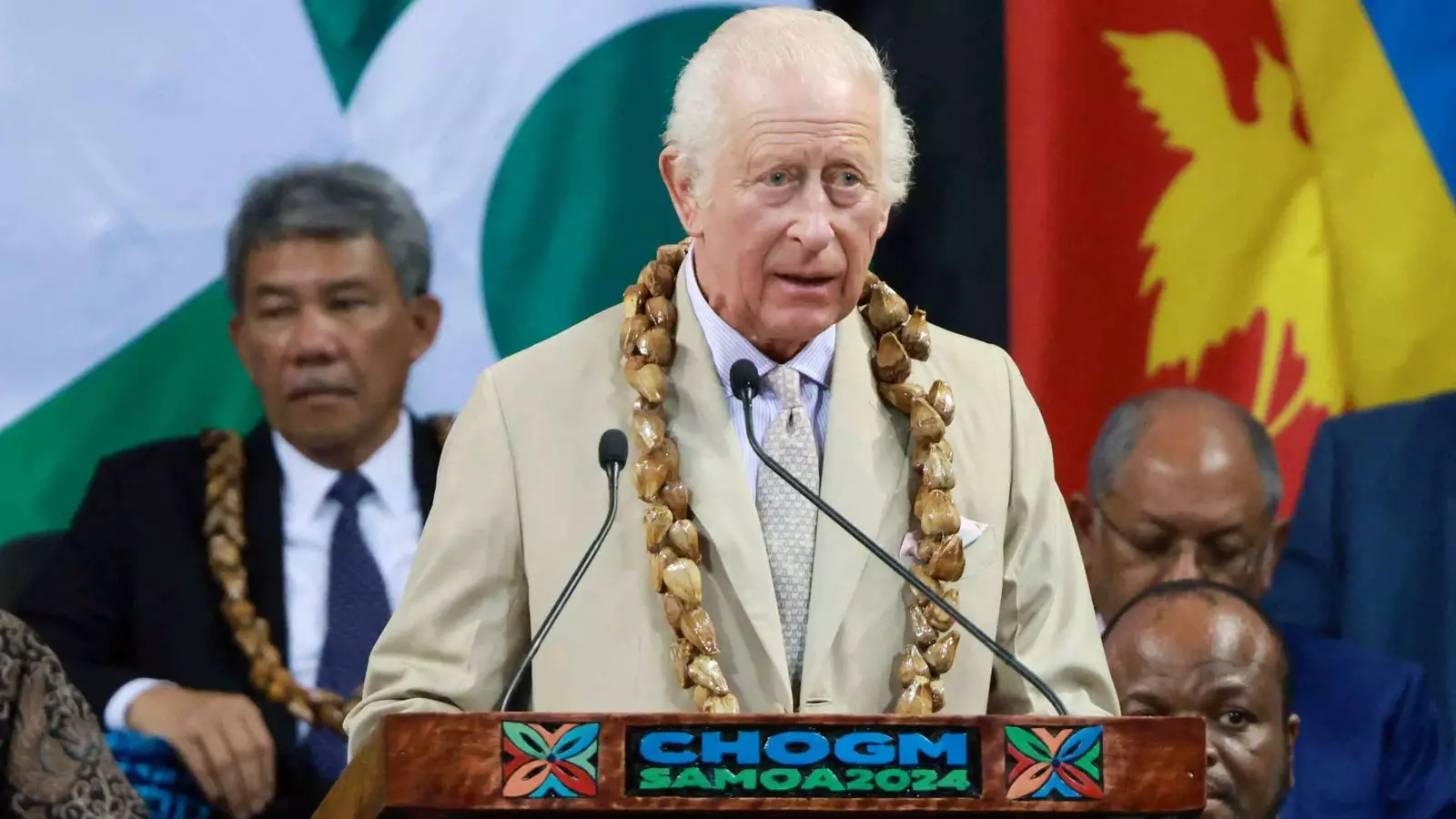The recent visit of the King to Samoa marked a crucial juncture in his reign, representing the first encounter with Commonwealth leaders in his new capacity. The backdrop of this meeting was the continuing talk of a “common future,” a phrase laden with both hope and challenge. While the sentiment aims to foster unity within a sprawling network of nations, the stark reality is that a profound schism pervades discussions surrounding historical injustices, particularly the legacies of slavery. In many ways, this dichotomy encapsulates the ongoing struggle within the Commonwealth—a group that, despite its shared history, is increasingly at odds over reparations for the atrocities of the slave trade.
During his speech, the King emphasized the importance of acknowledging painful histories to navigate future decisions. His choice of words was deliberate; by refraining from explicitly mentioning “slavery” or “reparations,” he aimed to strike a delicate balance between maintaining royal neutrality and addressing the grievances of nations demanding restitution. However, for a significant number of representatives from Caribbean and African countries, such caution was deemed insufficient. They are resolutely advocating for a formal acknowledgment of wrongdoing coupled with reparations—a sentiment echoed by Eric Phillips, a prominent campaigner from Caricom who articulated a hardline stance on the continued trade relationships without reparative justice.
Caught in a complex web of historical accountability and contemporary politics, the King finds himself navigating murky waters. Buckingham Palace maintains that the monarchy must remain apolitical, creating a barrier for the King in terms of issuing direct apologies or making commitments. Nevertheless, this stance raises questions about the relevance of the monarchy within the Commonwealth, especially when its legacy is intertwined with the very trade that caused deep-rooted suffering across generations.
Despite his previous expressions of “personal sorrow” regarding slavery and steps taken to enhance understanding of his family’s historic links to the slave trade, many in the Commonwealth feel that these gestures do not go far enough. The reverberations of history are not easily redressed and, more importantly, the dichotomy between acknowledgment and action intensifies the call for meaningful reparative measures.
As discussions around reparations grow heated, the future of the Commonwealth hangs in the balance. The notion that the Commonwealth can peacefully coexist while grappling with such profound divisions seems increasingly tenuous. The King concluded his address on an optimistic note, urging collaboration to learn from past mistakes and foster harmony. However, against the backdrop of unresolved issues and calls for accountability, many critics perceive this as a missed opportunity to seize the moment for genuine reconciliation.
The ongoing tension threatens not only the fabric of the Commonwealth but also its collective identity. As nations determine their futures, the challenge lies not merely in navigating political dynamics but in reconciling with a past that continues to define them. For a collective built on cooperation, the road ahead will require more than well-crafted speeches; it will necessitate actionable commitments to address the inequalities that persist today. Whether the Commonwealth can rise to meet this challenge remains to be seen, but the stakes have never been higher.

